Counting skills Numbers 11–20 Worksheets
5 filtered results
-
From - To
Enhance your child's counting skills with our engaging "Counting Skills Numbers 11–20 Worksheets." These carefully designed resources offer a fun and effective way for early learners to master numbers 11 through 20. Featuring a variety of activities—such as counting objects, number matching, and fill-in-the-blank exercises—these worksheets cater to different learning styles. They enable children to practice recognizing, writing, and counting numbers in an interactive manner, reinforcing essential math concepts. Perfect for classroom or home use, these worksheets facilitate skill development while keeping your child entertained. Help build a strong mathematical foundation with our Counting Skills Numbers 11–20 Worksheets today!
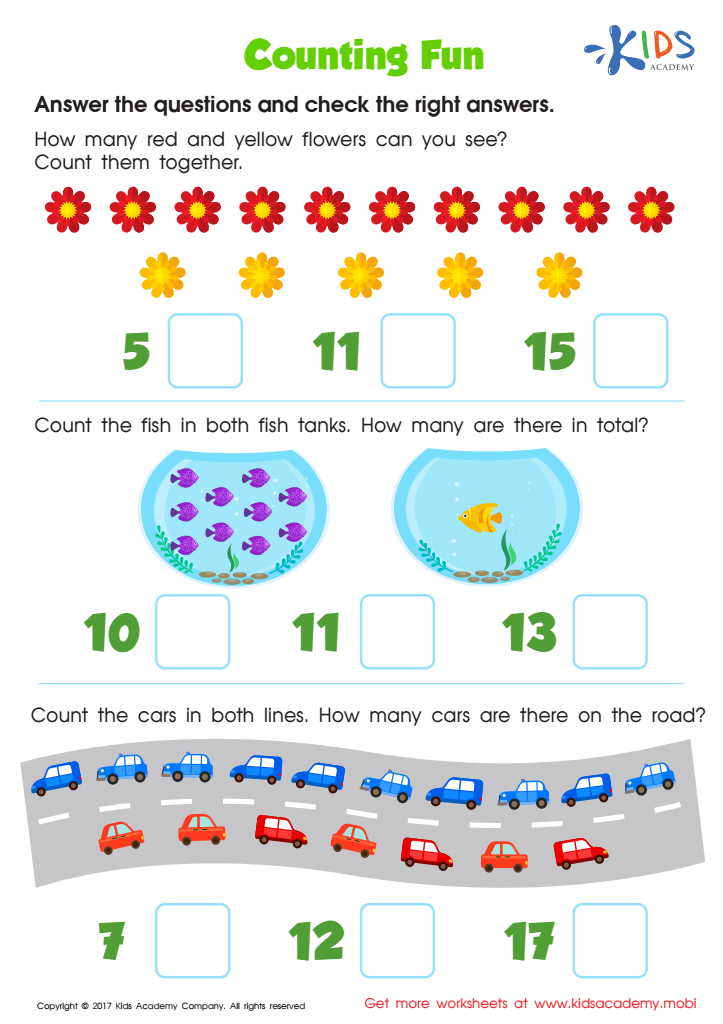

Counting Fun Worksheet
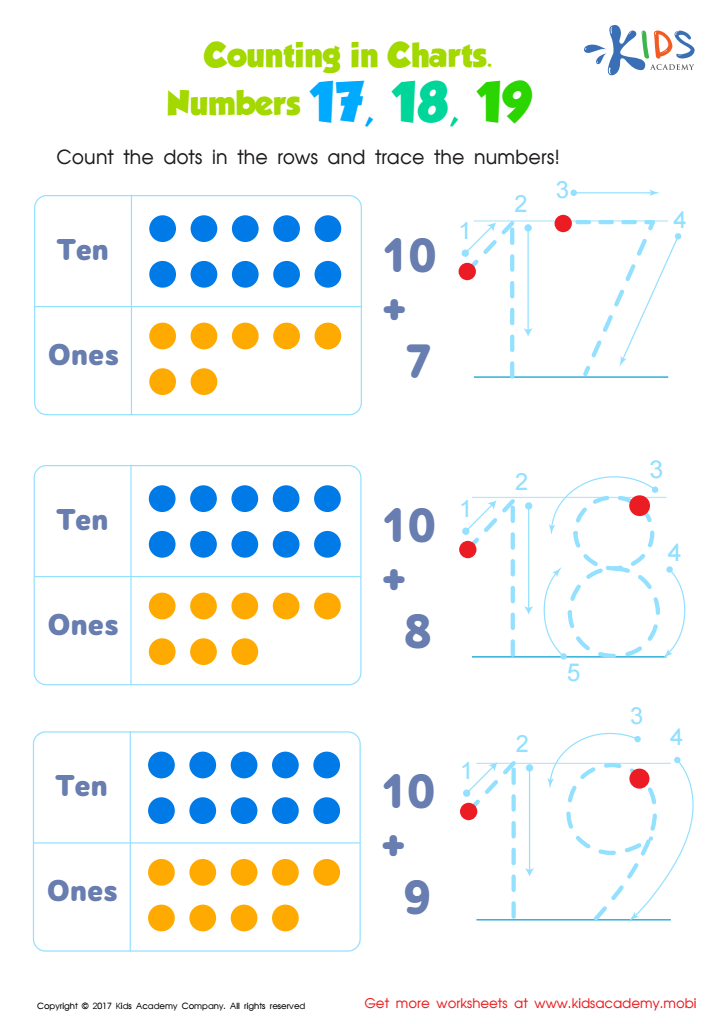

Kindergarten Number Tracing: Counting in Charts Worksheet
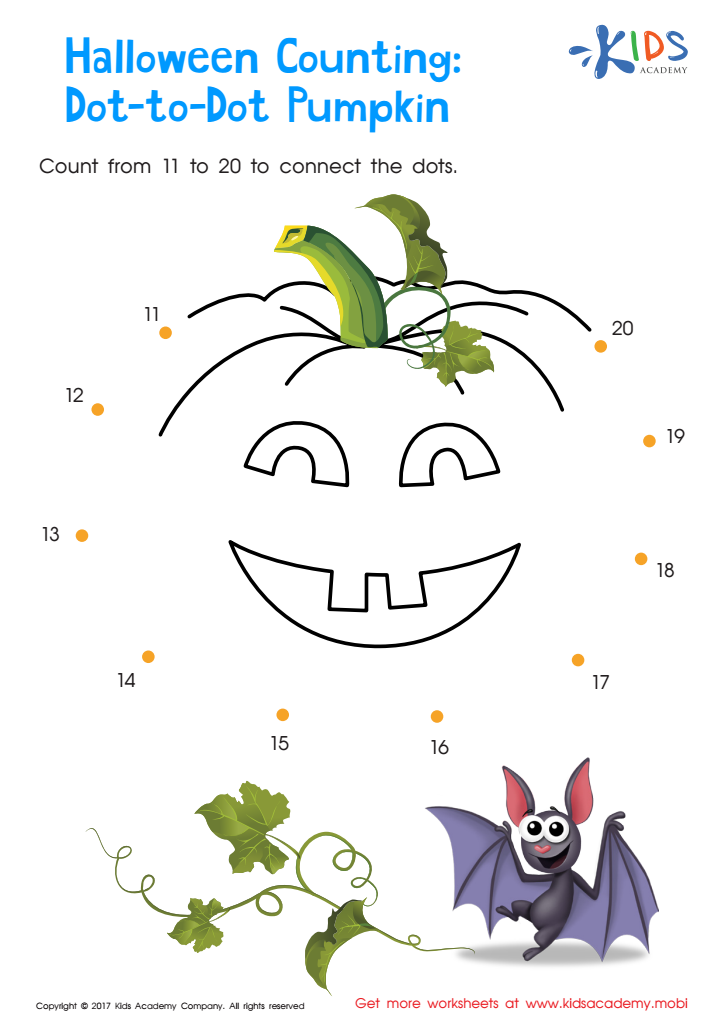

Ordering 11–20: Halloween Counting Worksheet
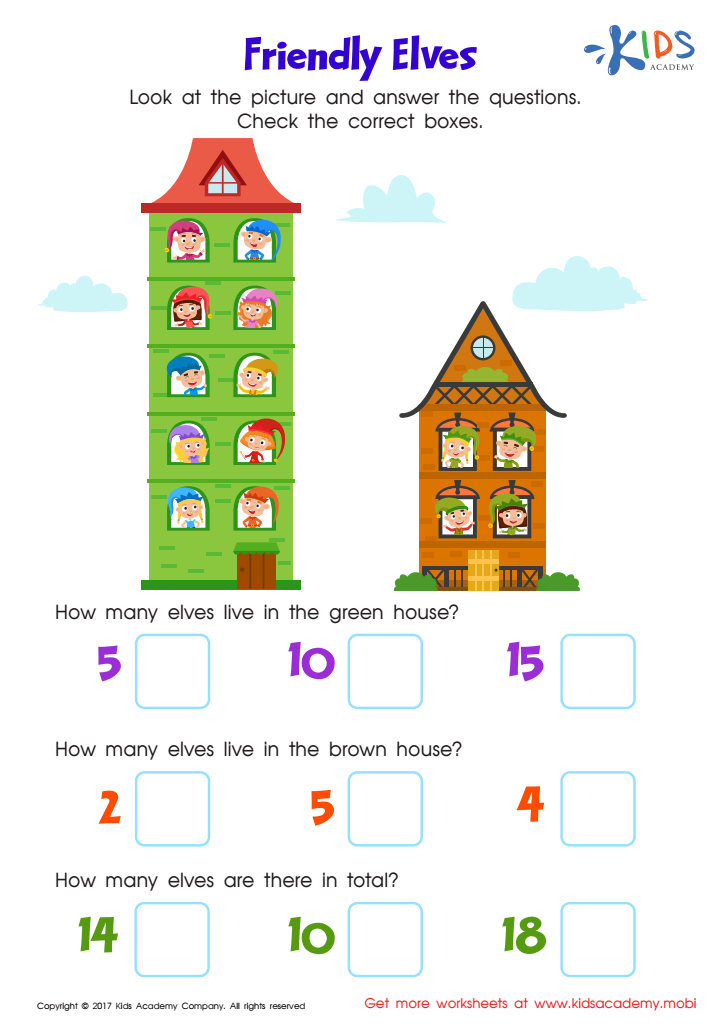

Place Value: Friendly Elves Worksheet
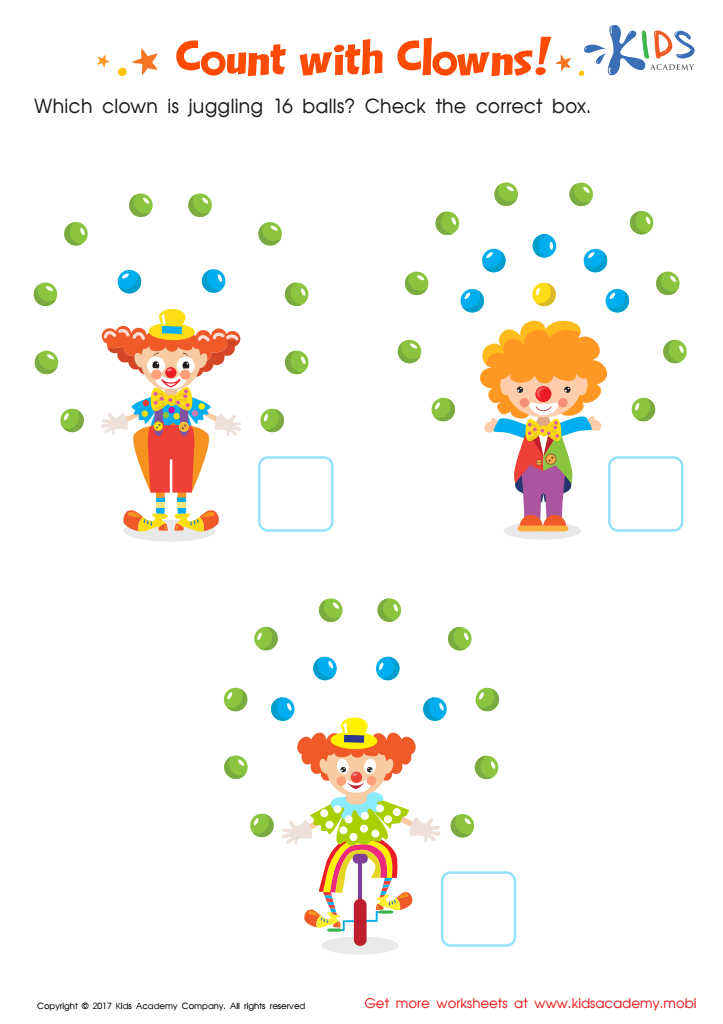

Count with Clowns Worksheet
Counting skills, particularly with numbers 11–20, are crucial in early childhood development as they establish a strong mathematical foundation. Parents and teachers should care about these skills because mastering counting in this range helps children understand numerical concepts, numerical order, and basic arithmetic, which are essential for problem-solving in daily life.
Initially learned through tactile experiences like counting objects, children develop persistence and confidence in their abilities. This foundational skill encourages sequential thinking, aiding in later concepts such as addition and subtraction. Moreover, familiarity with numbers 11–20 supports literacy as children learn to recognize and write these numbers, enhancing their language skills and cognitive functions.
Additionally, practicing counting extends beyond academics; it cultivates essential life skills. Children learn to categorize, organize, and make sense of their environments when counting objects, sharing them during play, or following directions involving numbers.
As children become proficient in this range, they gain a sense of security with numbers, creating a positive attitude toward math as they age. In summary, supporting the development of counting skills from 11–20 lays the groundwork for more complex mathematical understanding and fosters a love for learning that benefits children throughout their education.
 Assign to My Students
Assign to My Students














